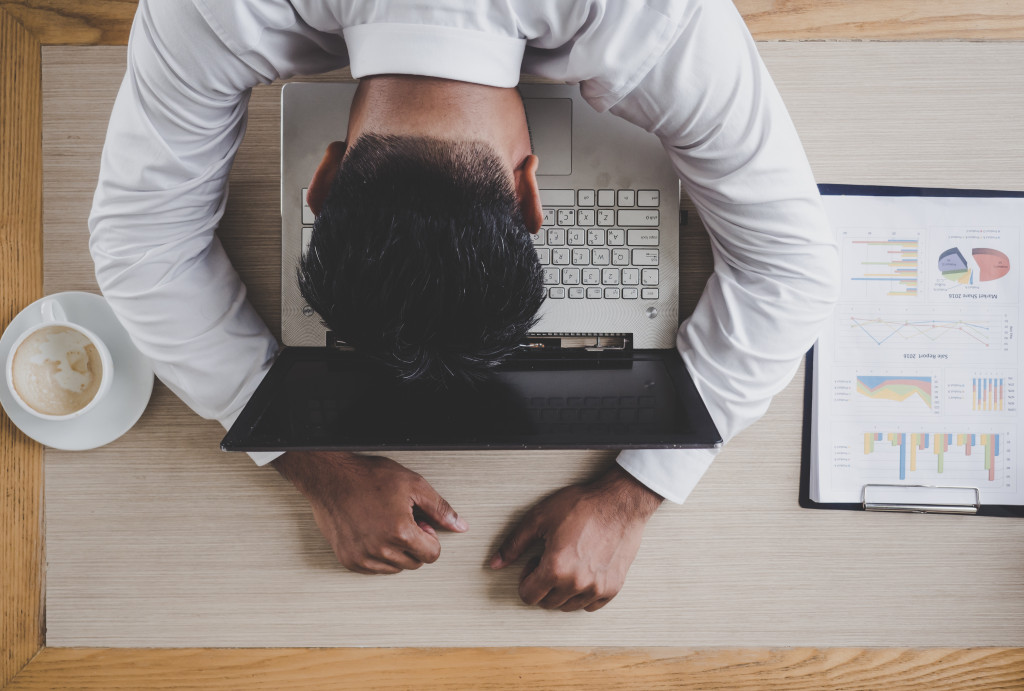A lot of us feel neck pain from time to time. And most of the time, we attribute this to wrong sleeping positions or the hours we spent in front of the laptop last night. But a stiff, painful neck could be telling us more about what’s going on, and we should listen.
The neck is composed of vertebrae connected from the base of the skull to the upper part of the torso. In between, there are cervical discs that absorb shock or pressure. The head is supported by muscles, bones, and ligaments of the neck. Any inflammation, injury, or anomaly to any of these several parts can cause pain or stiffness of the neck.
Causes of Neck Pain
Muscle tension and strain. Our neck muscles may feel strain because of:
- Poor posture
- Working at a desk for extended periods, without changing positions
- Sustained position of the neck while sleeping
- Vigorous jerking motion during exercise
Injury. Rigorous exercise, falls, car collisions are all possible causes of neck injury. Abrupt or forceful movements can cause the neck’s muscles and ligaments to move beyond their normal range. One of the most common neck injuries is whiplash, typical of car accidents or extreme sports. Whiplash is when the head is suddenly and forcefully thrown backward, then forward.
Heart attack. Neck pain, with other symptoms present, can be a symptom of a heart attack. Do not ignore your neck pain when it is accompanied by:
- Sweating
- Nausea
- Shortness of breath
- Vomiting
- Jaw or arm pain
It is important to remember that when you are experiencing neck pain and some or all of the symptoms above, you should call an ambulance or immediately go to the nearest hospital emergency room.
Meningitis. This is the inflammation of the layer of tissue surrounding the spinal cord and brain. Individuals afflicted with meningitis will typically experience fever and headache, usually with a stiff neck. Meningitis is a serious medical emergency and may even be fatal. If you have these symptoms, immediately seek medical attention.
Other causes of Neck Pain
- Rheumatoid arthritis causes pain, joint inflammation, and bone spurs. When these symptoms are present in the neck area, there will be neck pain, as well.
- Osteoporosis is a condition where bones weaken, which can lead to minor fractures. Osteoporosis typically affects bones in the hands or knees but is also possible in the neck area.
- Fibromyalgia causes muscle pain throughout the body, particularly in the upper regions of the neck and shoulder.
- Spondylosis, also known as osteoarthritis of the neck, is caused by the cervical discs’ degeneration that occurs with age. This deterioration narrows the space found in between the vertebrae. Also, this adds pressure to the joints.
- A herniated cervical disk (also referred to as slipped or ruptured disk) happens when a disk protrudes after an injury or trauma. This adds pressure on the nerve roots or the spinal cord, causing pain felt in the neck.
Home Remedies for Neck Pain

- Apply a cold compress for the first few days. Afterward, apply a hot compress using a heating pad, hot water bag, or a hot shower.
- Take over-the-counter pain relievers, such as acetaminophen or ibuprofen. Make sure you have no allergies to these components.
- Avoid strenuous lifting, sports, and other activities that may aggravate your symptoms. Once there is relief from the neck pain, and you decide to return to such activities, make sure to do so gradually.
- Do neck exercises every day. Do stretches using up-and-down and sideways motions. Just make sure you do these slowly so as not to cause strain.
- Practice good posture.
- Utilize a specialized neck pillow when sleeping.
- Get a neck massage that isn’t too hard.
- Avoid cradling objects such as the phone or anything similar in-between your neck and shoulder.
- Be conscious about sitting or standing in the same position for an extended period. Change your position often.
- Do not use a neck brace or collar without advice from your physician. These things may aggravate your symptoms if used incorrectly.
You may also consider alternative therapies for your neck pain. These can be acupuncture, massage therapy, or chiropractic treatment that have proven to help such situations.
Many people experience neck pain because of bad posture and muscle strain. In such cases, it should disappear when you practice good posture and allow your neck muscles to rest, especially after exertion. Sometimes, it results from injury from extreme situations such as falls, extreme sports, or car accidents. Visit a licensed chiropractor or a medical professional if the pain persists even with home treatment.
Pain shouldn’t hinder you from living your life and going about your daily routine. Know what you can do to address your condition without harming yourself.
